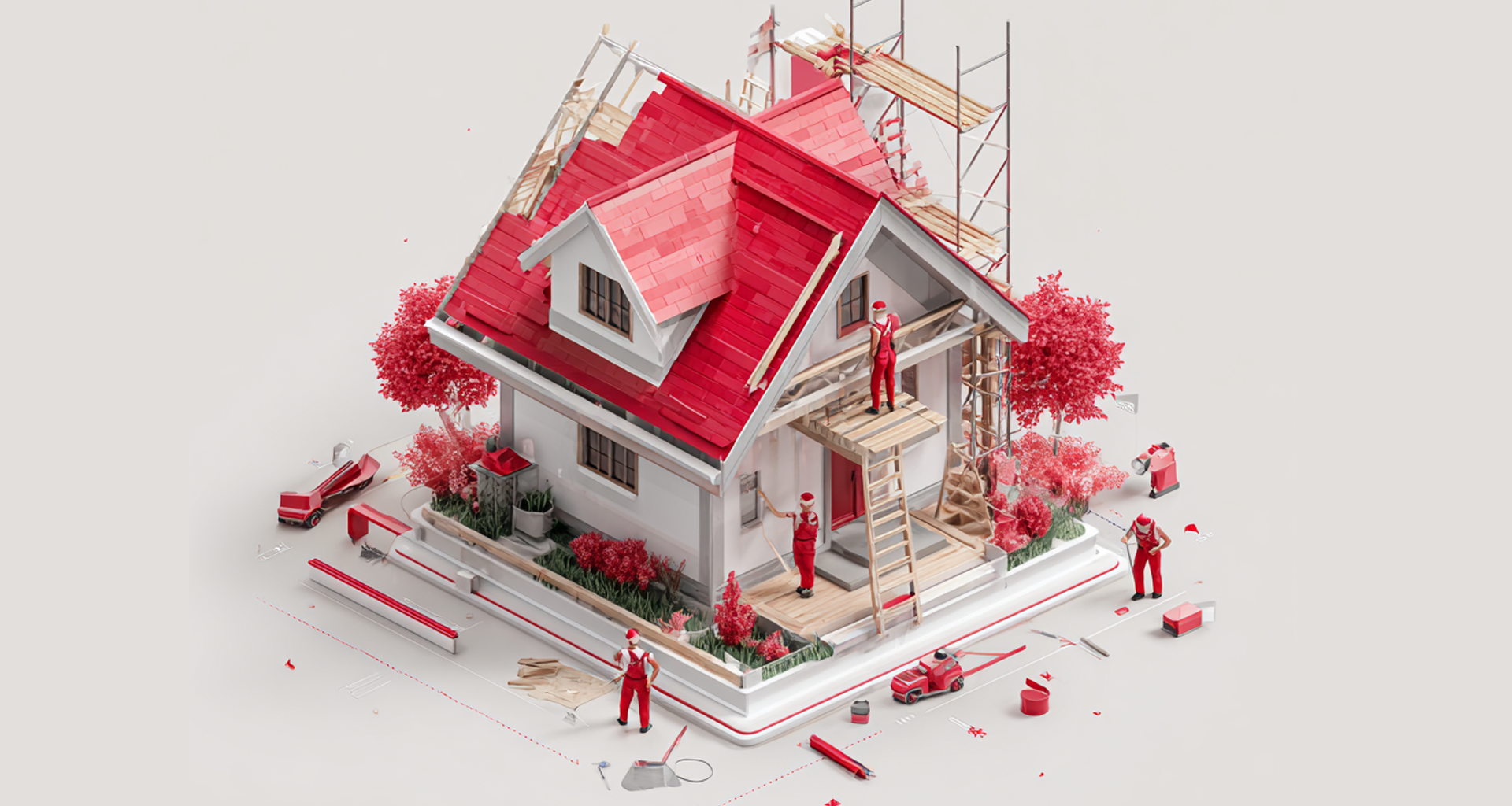
If you are not redirected within 30 seconds, please click here to continue.
Samedi: 10h – 16h HAE

If you are not redirected within 30 seconds, please click here to continue.
If you are not redirected within 30 seconds, please click here to continue.
How to insure your unconventional home

With soaring home prices and an increasingly remote workforce, it may be no surprise to see more Canadians setting up home in kit houses, houseboats, vans - basically, wherever a bed can fit.
Non-traditional homes sit on small patches of land or no land at all, and can be cheaper and faster to build than a typical house. They are almost always more sustainable, too.
But unlike the average single-detached home or townhouse, getting the right insurance for your remote abode can be tricky. While it’s not mandatory, home insurance can provide coverage for your home and your valuables if things go massively awry.
Can you get home insurance for alternative homes? The short answer: Yes. However, the actual coverage you need depends on the type of home you have.
Tiny homes, kit or modular home

Tiny homes have been around for years and have a healthy presence on both HGTV and social media. Tiny homes — which are standard homes but shrunk down to about 150 to 400 square feet — typically fall under conventional home insurance guidelines.
You may decide to build the tiny home yourself, or opt for a kit home, or modular home, which is a type of dwelling that is built offsite then delivered. In either case, insuring it shouldn’t be a problem. Read more about insuring your tiny home here.
However, if your tiny home comes with wheels, some insurers may cover it under RV insurance, or require certain inspections. That brings us to….
RVs, mobile homes and homes on wheels

If your tiny home is hitched to a trailer – or, if it’s not a tiny home at all but rather a mobile home or an RV – it will need a different kind of insurance known simply as RV insurance.
Most RV insurance policies are designed for seasonal living, but if you plan on staying in your mobile home full-time, you’ll need an insurance policy that will cover your personal belongings, equipment, towing and repair services.
You can get also get home insurance specifically for mobile homes if it meets certain requirements (i.e., it can’t actually be mobile).
If you plan on very occasionally relocating your mobile home, mobile home insurance will still cover it when it’s stationary, but most insurance companies will not cover any damage during transit.
Treehouses

All you need is a tree to build a treehouse — but whether it’s legal depends on the location. You could build one in a national park but it’s not legal to live there, and you probably won’t find an insurance company who would cover you. But what if you want to build a treehouse in a private backyard?
A treehouse is a detached dwelling built in a tree or has trees incorporated into the design. If your treehouse is on your own land, you could get regular home insurance for your treehouse, like you would a tiny house or any other home.
If you decide to live in a treehouse on someone else’s property, it would likely be considered as a permanent detached structure. In that case, the homeowner should consider adding landlord insurance and you would take out a separate tenant insurance policy.
Of course you build your treehouse yourself, course of construction insurance will make sure you’re covered during the build itself.
In any case, an insurance broker will help guide you through the complexities of this unconventional home.
Related: How to insure a home you build yourself
Off-grid homes

Off-grid homes are residences that generate their own power (usually through solar panels), collect their own water and grow their own food. They are typically located in remote areas, far from cities and the conveniences of society.
People who choose the off-grid lifestyle are highly self-sufficient, sustainability-minded and handy with tools. However, others turn to living off-grid simply because electricity is too expensive where they live, or they’re simply based in one of the hundreds of remote communities that rely on diesel fuel to be shipped in.
There is no specific insurance policy for off-grid homes. However, if you can’t rely on the standard infrastructure for heat, air and sewage, you might find yourself paying a higher premium on your home insurance policy. That’s because off-grid homes have a higher risk of:
● Fire damage if you use wood to heat your home.
● Property damage due to do-it-yourself installations like electrical wiring
● Theft, especially if you’re not living there full-time.
● Damage incurred because your home might be too remote for emergency services to reach in time to prevent significant damage.
As such, you may have trouble finding insurance, or opting to deal with any problems yourself.
Shipping containers

Shipping containers have been a popular home alternative type for a few years now. Picture an old rectangular shipping container – between 10 to 40 feet long, and eight feet wide – that has been modified to include windows, doors, wiring and plumbing. You can even stack multiple containers on top of each other for multi-level housing.
Pros? They’re cheaper to build, take less time to construct, and use less energy and fewer carbon-emitting resources than your average concrete and wood house. However, they are also more complicated to zone and get permitting for, and their sheet-metal construction makes them difficult to insulate.
Once built, a shipping container home can be insured as any other constructed home would be, with the rare exception of a container home without a proper foundation (which is not recommended anyway).
Boats, house boats and pontoon boats

Unlike most the other home types mentioned, houseboats don’t have a foundation to speak of. Instead, these floating homes are self-contained dwellings buoyed by water.
Houseboats combine the risks of both home and boat. Firstly, they are always in need of repair. Plus, they’re more vulnerable to both external damage (like extreme weather, excess water, or other boaters) as well as internal damage (mice and vermin, carbon monoxide from gas-powered generators).
In addition to the damage, you may need emergency towing or a temporary boat in case of emergency.
And because it is a home, that happens to be a boat, you’ll likely require extra contents coverage for your personal belongings.
Only a handful of insurance companies offer houseboat insurance. A few might only insure your houseboat as part of the home insurance policy for your principal address. Some may refuse to cover houseboats outright, and others insure houseboats under general watercraft or boat insurance.
The best way to find adequate coverage for your houseboat is to consult with the marina to understand common damage risks and call around different insurance companies.
Read more: The cost of owning a boat
Vans

Ah, the #vanlife. It’s the latest craze among wanderlusting digital nomads. Unlike your typical home, insurance on a campervan is mandatory – but this one would fall under auto insurance.
Beyond that, the type of insurance required depends on your unique situation.
If you maintain a permanent home and only live in your van part of the time, you can add an endorsement to your existing home insurance policy to cover your belongings in the van, along with auto insurance.
If you live in the van full time, you can opt for campervan insurance. It’s similar to motorhome insurance where you can get comprehensive, collision or perils coverage.
Does it make sense to have home insurance for non-traditional homes?
Just because the homes listed above don’t have the traditional four walls doesn’t make it any less a home. And while home insurance is not mandatory for any home, you still want to protect it – especially if you’ve put effort and money into building your little piece of paradise. The best way to find coverage is to research your situation online and speak to a broker
Compare home and seasonal property insurance quotes for free!
Get money-saving tips in your inbox.
Stay on top of personal finance tips from our money experts!










